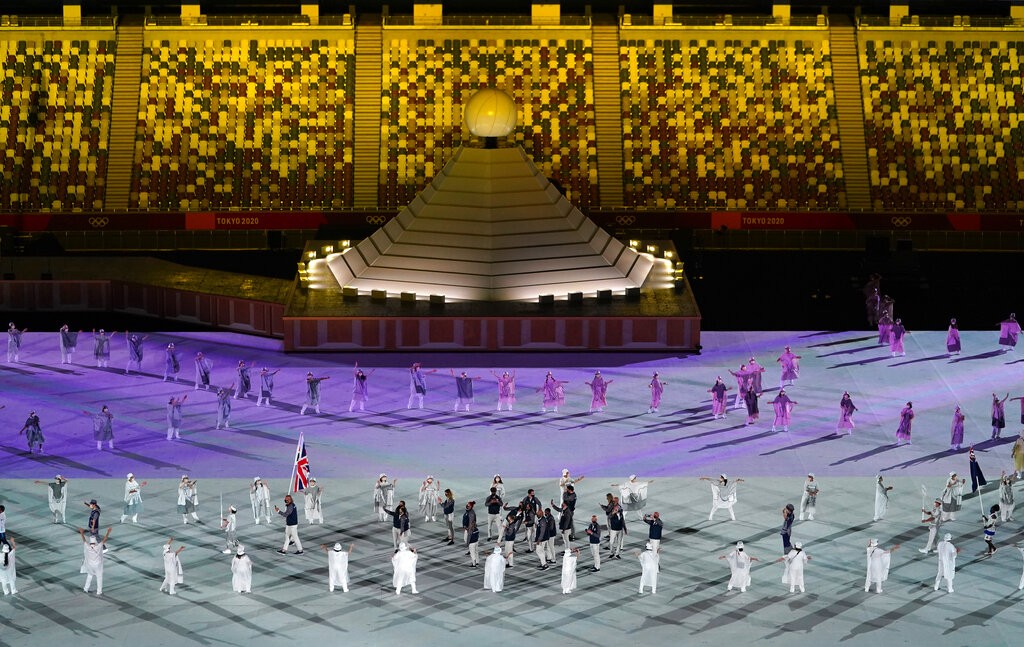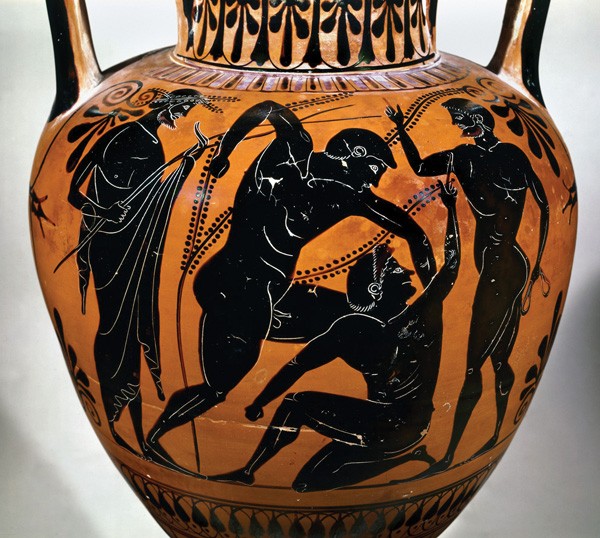A brief History of the event…
Imagine there’s no countries
It isn’t hard to do
Nothing to kill or die for
And no religion, too
Imagine all the people
Livin’ life in peace
I was a little… surprised. Last friday, along with 17 other million viewers world wide who also tuned in, I watched the beginning of the Olympics and listened to John Lennon’s eternal lines.
Didn’t anyone else notice the irony? Why would you blast out lyrics proposing no countries as thousands of young athletes march under their individual nations’ flags? As the line snaked around the stadium and the list of countries were announced, we were simultaneously reminded that in the end, we are all human with the same motivations and dreams of gold, as well as separate peoples with histories of war and violence.
Makes you wonder, no? Makes you think – what is the purpose of the Olympics in the first place?

But before we delve into today’s question, perhaps a quick review of the games themselves – their ancient versions at least – kindly supplied by contributing writer, Divya Gupta:
The Origin of the Olympics
The first ancient Olympic games were held in 776 BC in Olympia, on the first full moon after the summer solstice (around mid-July). The ancient town of Olympia was named after Mount Olympus, though it is nowhere near it. Mount Olympus is the highest mountain in Greece, and in Greek mythology, it was considered as being home to the gods and goddesses, and the Sanctuary of Zeus.
The ancient Olympic game began as a regional religious event and reached the heights of national importance when the Greek empire spread in the 5th century B.C. What was once a friendly and fun-loving event, became a matter of colonial pride!
The winner of the first Olympic Games was Koroibos, a cook hailing from the town of Elis who won the only game, stade (origin of the word stadium). Stade was a 192-meter-long footrace that continued to be the only sport for 13 Olympic festivals.
Olympic Games
Sporting activities were an integral part of Greek education. The athletes would start preparing at an early age by professional trainers who helped them develop muscles, regulated their diet, and taught them sporting techniques.
There were many other sporting competitions, but the Olympics remained the most prestigious one. After 13 successful games, two more races were added: the diaulos (around 400-metres race) and the dolichos (a 1500-meters race). In 708 B.C. the very famous pentathlon (a race with five events: a foot race, long jump, discus, javelin throws, and wrestling match) was introduced. Many other games were added through the years like boxing in 688 B.C., chariot racing in 680 B.C., and pankration in 648 B.C.
Olympic Rules and Regulations
Greeks took these games pretty seriously. Every athlete had to report to the events one month before the games and had to declare that they have been training for a minimum of ten months. Non-Greeks, lawbreakers, slaves, and murderers were prohibited from participating. Many cities, including Sparta in 420 B.C., were excluded from the games too.
The Hellanodikai judges from Elis were trained specially to organize the event. They had the power to disqualify and punish participants who infringed the law. On the breaching of any rules, the athlete or the city he represented had to pay hefty fines.
The Participants and Olympic Champions
The Hellanodikai judges crowned winners with a wreath made of olive leaves and branches, as a sign of victory. Olive was significant to Olympia because it was planted by Hercules himself. In chariot races, the owners received these olive leaves while the charioteer was gifted a red ribbon to be worn on the upper arm or head. Victors were highly regarded and would often be welcomed to their hometowns with a grand ceremony. Large celebrations were organized in honor of their victory. Olympic winners were considered real heroes and received glory, fame, and historical immortality.
It is speculated that almost 45,000 people would attend these famous games. Food vendors, musicians, and artists would all come together to entertain people. Masses would extend their support with boisterous activities and hooting. No wars were allowed during the period and people would excitedly gather to celebrate the prestigious event.
End of The Ancient Olympics
Around the mid-2nd century, the Roman Empire conquered Greece and eventually the standard and quality of the games fell. In 393 A.D., Emperor Theodosius banned all ‘pagan’ festivals including the famous Olympics. The ancient game lasted for nearly 12 centuries with 293 successful Olympiads before coming to an end.
—-
There you have it, dear reader, a nice brief recap of the ancient games to whet your appetite for the current events.
But as you are cheering or booing or perhaps ignoring the spectacle all together, it’s always worthwhile to question the value of the things in which we are participating… or not.
To that end, I ask you: Do the Olympics Unite or Divide Us? Do they have meaning and value in our modern world?
As always, you can write to me directly at [email protected] or comment below.












No comments yet. You should be kind and add one!
Our apologies, you must be logged in to post a comment.